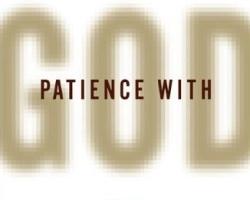An online poll by Charisma magazine recently asked: Is celebrity Christianity dead? The answer, according to author Frank Schaeffer, is NO. Schaeffer, author of the new book Patience with God, talked to YWJ about what he sees.
What do you see as the role of the youth minister in today’s world?
Teaching people to think for themselves. Teaching people to be unafraid to leave their questions open and to embrace the paradox of life rather than worry because they don’t have all the answers. A good place to study these ideas is to point young people to the writing of the Church fathers of the first to sixth centuries. Those folks weren’t fundamentalists.
When you were growing up, were there any youth ministers who you admired?
Of course my father was our minister. He never talked down to the children and young people listening. One grew into his sermons. I liked that. Instead of him trying to be “relevant” to us, we felt respected by the fact that he treated us as grownups.
How did your childhood experiences shape your faith?
Seeing my missionary parents’ kindness to people spoke many more volumes to me than anything they said. They opened their home to everyone and were open to them. We had unmarried girls who were pregnant staying with us, people of all races, gay men and women and so forth. So when my parents said that compassion and love were important I believed them, having seen this practiced in the lives of the people they touched.
How can youth workers avoid celebrity worship (of them) in their own work?
Be honest! Instead of having all the “answers,” admit you don’t know; hope and trust more than have certainty; make mistakes. Don’t be afraid to show yourself, warts and all.
What do you mean by needing to have patience with God?
The New Atheists and the religious fundamentalists give us a false choice: absolute belief or absolute disbelief. Both put forward a “system.” The reason we need patience is because real life is all about paradox. To know God is to experience God, not to know about God. We need patience because experiencing God neither happen on a timetable of our choosing, nor do we find answers in a book.
What similarities do you see between atheists and evangelicals?
The New Atheists pit religion’s literalistic truth claims against their own literalistic truth claims. In that sense, the New Atheists turn out to be secular fundamentalists arguing with religious fundamentalists.
To me, the secular and religious contenders seem to miss the reality of our actual condition: We are specks on a tiny planet; and our concept of truth, time and space is related to our limited perspective. It strikes me that postmodernism possesses a healthy sense of skepticism when it comes to grand theories. Truth is, if not only “in the eye of the beholder,” nevertheless always is seen through an opaque filter. Whatever solutions we embrace had better be on a human scale and reflect something of the paradoxes we encounter in real life.
Frank Schaeffer is a New York Times best-selling author. His new book, Patience with God: Faith for People Who Don’t Like Religion (or Atheism), will be published by Da Capo Press in November 2009.




